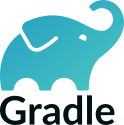In this session we present PapyGame and how both teachers and students can play with it. We have defined a learning path, available in the current version of the tool, (https://wiki.eclipse.org/Papyrus_PapyGame) where participants can learn UML Class diagrams modeling.
This scenario takes place in a software design course for master students. In this learning path, the main elements of the learning process are learning material, quizzes and modeling exercises in the context of UML Class Diagrams. Students are taught concepts and principles during lectures, and are required to apply this new knowledge through a specific learning path. Each node of the path is gamified and each passed step unlocks the next and brings its share of XP and gold coins. Gold coins allow the student to receive a specific badge and unlock extra exercises.
To start a PapyGame session, the player must first enter their login and password. Once connected, PapyGame displays a Dashboard representing the learning path to execute. The completed (successfully) tasks of a learning path are displayed in a different color with the corresponding number of XP and gold coins rewarded. Remaining levels are colored in gray with a lock except for the first one which is the next step to be played (unlocked). The Dashboard shows on the left the amount of XP and gold coins accumulated.
To play an unlocked the different steps of a path, the player can click it to start the loading of its associated exercise.
To install the PapyGame and see it in action, with an illustrative video, you can visit our website at https://www.papygame.com/

















